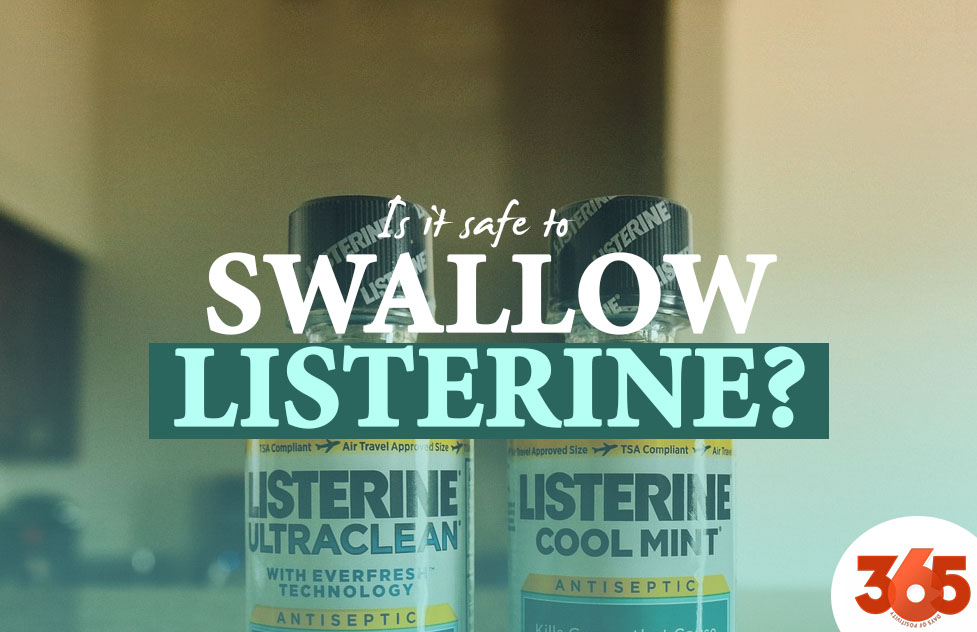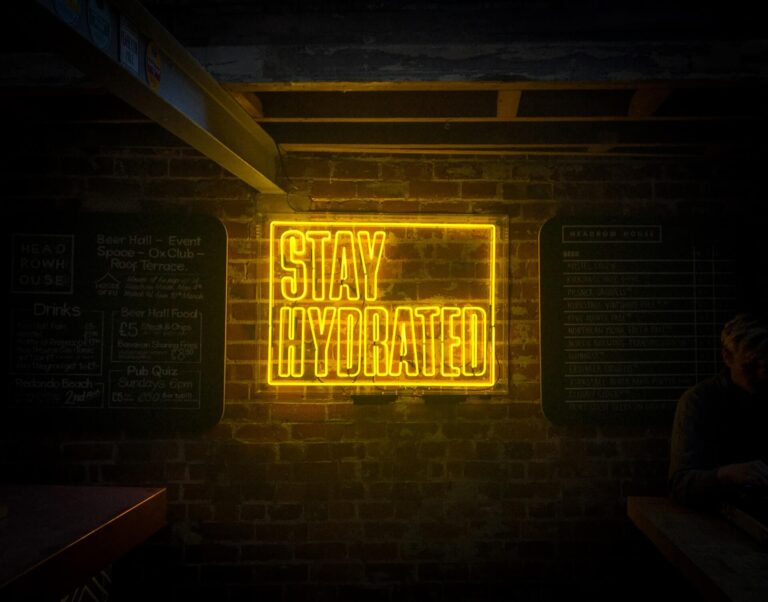We’ve all been there – it’s the end of a long day, and you’re too tired to brush your teeth, so you reach for the trusty bottle of Listerine mouthwash. But have you ever wondered whether it’s safe to swallow Listerine?

While the label on the bottle clearly states that it is not intended for ingestion, some people may accidentally swallow small amounts while rinsing their mouths. And it’s quite normal, similar to when a child accidentally swallows chewing gum.
Now, there has been some controversy over whether it is safe to swallow Listerine. Some people believe that it is harmless, while others think that it can be toxic for humans if ingested. So, what’s the truth?
Truth About Listerine
For many years, people have been using Listerine as a mouthwash to combat bad breath, eliminate bacteria, and maintain oral hygiene. Nevertheless, there are doubts and worries among people about the safety of consuming or even using Listerine.
If you’re an avid TikTok user, you must have come across videos of dentists trying to talk people off Listerine. Some reacted to such videos by filming themselves flushing it down the toilet and saying they would never use it again.
People believe that Listerine gets too much credit when compared to other mouthwashes it contains more alcohol and is not as good for the oral environment and gums.
Alcohol in Listerine
Listerine contains alcohol as its primary component, and consuming it excessively can cause harm. The amount of alcohol in Listerine is relatively small, depending on the specific formula, but it typically ranges from 21.6% to 26.9%. That’s not enough to get you drunk if you drink it straight from the bottle, but it is enough to cause problems if you accidentally swallow some while using it as a mouthwash.
As long as Listerine is used according to its instructions – which involve swishing it in the mouth for half a minute and then spitting it out – the likelihood of any negative effects is low. It’s unlikely that you would swallow enough to cause any harm (although, according to dentists who inherently hate Listerine, it can damage your gums.) However, if you have young children or pets in your home, it’s important to be careful with Listerine and keep it out of their reach.
If you’re concerned about the alcohol content in Listerine, there are alcohol-free alternatives available. But still, Listerine is not intended for drinking, so the alcohol-free version is more suitable for people with sensitive gums.
What If I Swallow Listerine?
Ingesting a small quantity of Listerine by mistake usually does not pose any major risks, and it is unlikely to cause any harm to your health. However, if you drink a large amount of this mouthwash for some reason or experience any adverse effects, it’s best to seek medical attention immediately.
With that being said, the presence of alcohol and other components in Listerine can pose a danger if consumed excessively, and it is important to take this into consideration.
The most common symptoms of Listerine ingestion include:
- nausea
- vomiting
- dizziness
- stomach pain.
Apart from visiting a healthcare provider, there are certain remedies that you can try at home to ease any discomfort. Hydrating yourself can help flush the Listerine out of your system more quickly. You can also try peppermint tea or other healthy drinks to soothe your stomach.
To prevent accidental ingestion of Listerine in the future, make sure to keep the bottle out of reach, especially for children and pets. Always store it in a secure location and never leave it unattended. Listerine bottles should have a safety cap, but you never know.
Bottom Line
If you accidentally swallowed Listerine, don’t panic because your health shouldn’t be at risk. Either way, ingestion of large amounts, especially by children, could cause health problems. Therefore, keep it out of the reach of both children and pets.
This article is purely intended to provide information and has not been authored by a medical expert. In case of experiencing any discomfort after accidentally ingesting Listerine, it is crucial to notify your doctor promptly.





